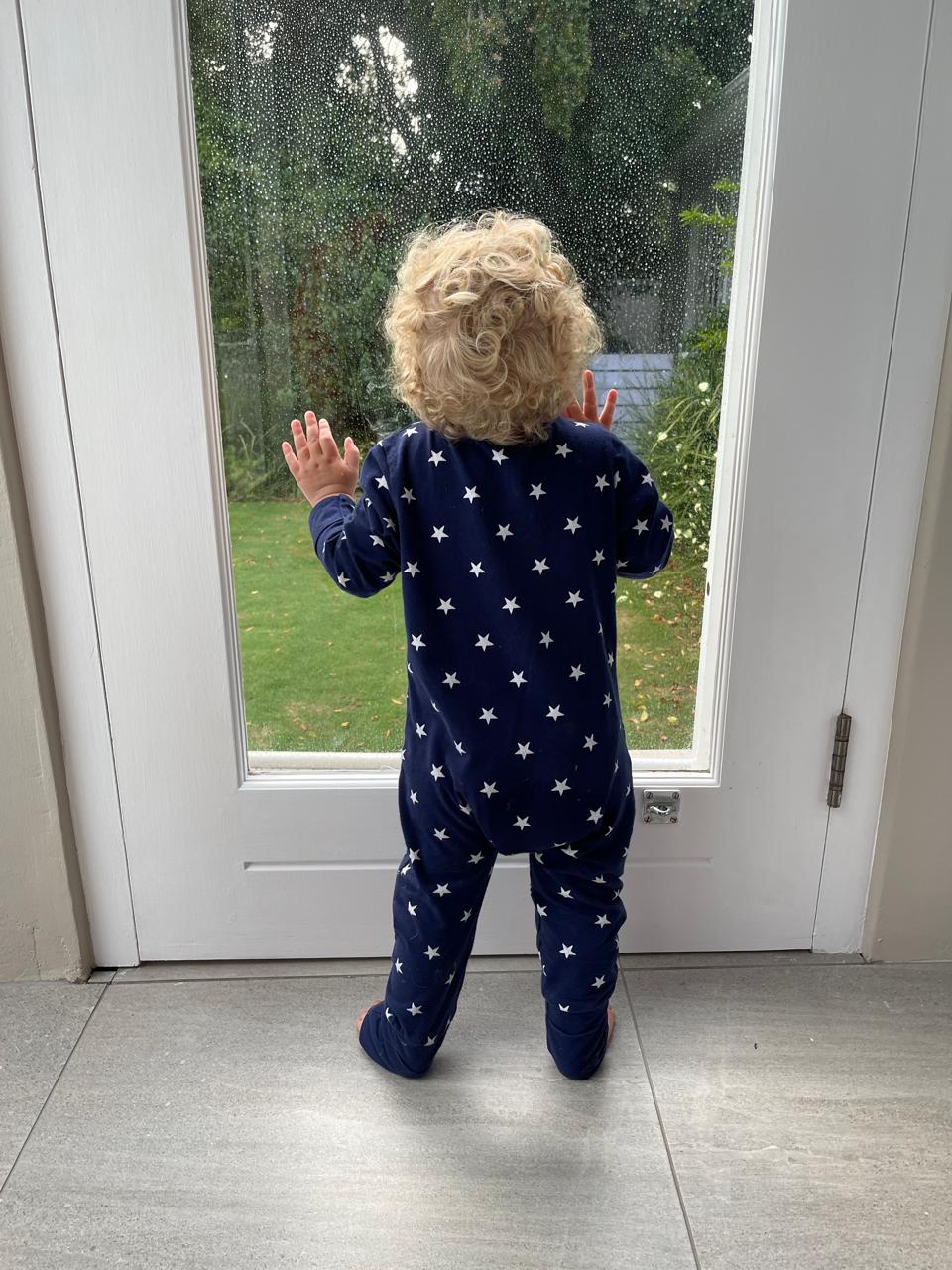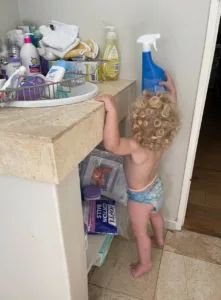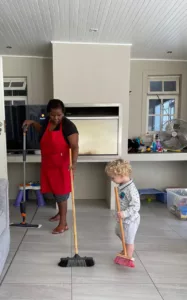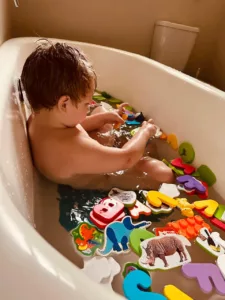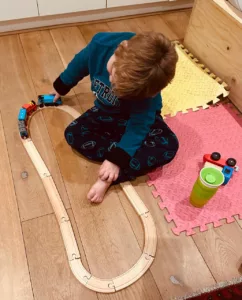As early as 65 B.C., the Roman poet Horace, wrote about the “Black Dog” of depression. And the image of a sullen black dog, shadowing your every move is an extremely vivid one that many depression sufferers can relate to. Winston Churchill found the description so apt, that he later adopted it himself. Though he was an inspired leader, a sharp orator, and an all around brilliant man, he battled the “Black Dog of depression” all his life. To my mind, if depression is the “Black Dog”, then anxiety is The Leviathan.
The very first sign that my son Aidan was autistic, was his high level of sensory sensitivity. His first few months were haunted by lurking allergies, hard-to-detect silent reflux, and a lot of debilitating overwhelm. Unable to communicate the depth of his discomfort, he cried. And inevitably, as the weeks went by, my emotions began to align to his. I could sense his anxiety and I could see his distress. I felt so helpless to help him and began looking for answers.
That desperate quest set me on a path to becoming a far more informed special needs mom. And over the years I’ve come to realise that anxiety is the root of most of Aidan’s struggles. Be they circumstantial, environmental, sensory, emotional, physical or anticipatory, The Leviathan drives them all. I have spent countless days and nights, watching anxiety eating my son alive from the inside. Like a merciless beast, it feeds his overwhelm, feasts on his cortisol levels, and steals so many of his joys. So the question quickly becomes, how do you consistently comfort an overly anxious child? How do you help to create a sense of safety and security when your baby is struggling? Truthfully, it’s a learning curve.
Your child’s specific needs and challenges, won’t be the same as mine. But if you can focus on anxiety as the root of every problem, your mind begins to clear of all the noise, and you can find the focus needed to troubleshoot almost anything. I regularly ask myself one simple question: “What is his fear in this moment?”
Is the fear that mom will leave the room and not come back?
Is the fear that he will lose your 1:1 attention when you start doing a chore?
Is the fear that something he’s enjoying doing is about to be redirected or terminated?
Is the fear that he’s about to be subjected to a care routine that triggers his sensory aversions?
Is the fear that an overfilled diaper won’t be noticed?
Is the fear that an itchy label in a piece of clothing will continue to bother him and he can’t indicate it as a problem?
Is the fear that he’s in an unknown place with unknown people and he doesn’t know what to do, where to go or how to respond to his environment?
Is the fear that a trusted person is getting angry or annoyed and he doesn’t understand why?
Is the fear that a request has been made and he doesn’t understand exactly what he’s expected to do?
Is the fear that a demand has been placed on him that he either can’t comply with or doesn’t want to comply with?
Is the fear that this toy will suddenly make a loud noise?
Is the fear that his toys and keepsakes are setup differently than he wants them to be?
Is the fear that a toy he wants is missing?
Is the fear that he can’t reach the thing he wants?
Is the fear that he’s going to be prevented from doing something fun but deemed dangerous?
Is the fear that a certain routine of his is going to be interrupted or disrupted?
Is the fear that he’s not yet ready to transform one thing to another?
Is the fear that he can’t identify individual foods within a puree or sauce?
Is the fear that he is expected to eat a food that he doesn’t like?
Is the fear that he can’t see a safe food amongst options offered to him at meal times?
Is the Is the fear that his parent can’t understand a health concern of his – like pain somewhere?
Is the fear that a routine is taking place that doesn’t tick all his boxes to secure his easy cooperation?
It honestly could be so many things!
The good news is that as you grow together, and you get to know your child’s likes and dislikes, joys and dreads, you’ll be able to anticipate any anxiety that might come up for them, and take steps to curb it. Sometimes this means letting your child lead and reading their body language for signs of trouble. Sometimes, you need to gently establish and firmly hold boundaries for safety reasons. Other times it means making peace with mess or unusual and repetitive activities that only make sense to them. Over time, our nervous systems organically align to theirs, and soon we find we know instinctively what they’re thinking and feeling. All of this takes a minute! So please be kind to yourself and give yourself grace in the meantime. You only know as much as you know in any moment or given situation. But experience and growth will come with time!
The Leviathan, by Boghos Artinian
I, a human being, thrive
On cells, a hundred trillion strong!
They all must strictly obey
Commands in the genetic tongue
That I may comfortably live
And unencumbered behave,
While each cell I ruthlessly hold,
Until the day it dies, a slave!
Yet I fail to understand
That I also must bear the pain,
Someday, of strictly obeying
The alien commands in my brain
That a leviathan may live
And unencumbered behave,
While me he would ruthlessly hold
Until the day I die, a slave!
